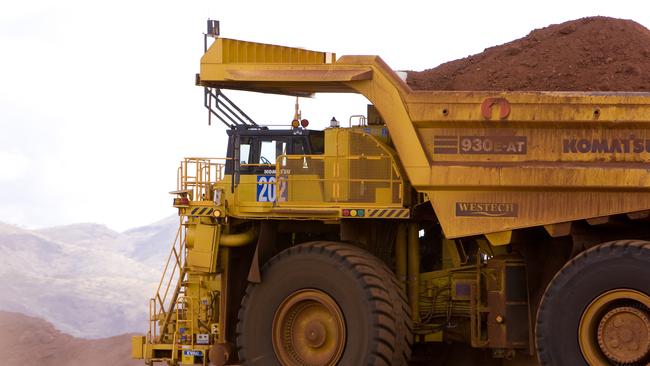Older workers glum about future of jobs
Almost half of older workers are fearful about the future of their employment amid a rising tide of automation, Rio Tinto says.

Almost half of older workers are fearful about the future of their employment amid a rising tide of automation and the loss of low-skilled jobs, according to a new report by mining giant Rio Tinto.
Rio Tinto has been on the forefront of mining industry efforts to automate the Pilbara iron ore industry, unleashing a wave of robot trucks, trains and drilling rigs over the past decade.
Rio iron ore boss Chris Salisbury is launching the Work of the Future report on Tuesday and will tell a Perth business audience that while the coming changes were exciting for some, they were worrying for others.
“What this study reveals is the very understandable fear among the workforce about their jobs, and the jobs of their children and grandchildren,” Mr Salisbury said.
“Our survey of the public found that about 30 per cent of 18- to 24-year-olds are very optimistic about the future of work. However, the older you get, the less optimistic you are.”
Out of the 1534 Australians the Rio Tinto report surveyed, 46 per cent of people aged 55-64 were “somewhat optimistic” about the future of work and opportunities, and 9 per cent of the same age group were “very optimistic”.
Business Council of Australia chief executive Jennifer Westacott said in the report that “every single job” faced changes in tasks over the next decade, and that such change was normal.
“We are going to see the most impact on low-skilled men aged over 55 years, especially those working in construction and manufacturing,” she said.
“Also affected will be low-skilled people in regional areas, parts of the financial services sector and low-paid, low-skilled women who often work in the most undervalued jobs.”
In an effort to tackle “myths around machines replacing people”, the report highlighted Rio Tinto’s development of Australia’s first nationally recognised Vocational Education and Training qualifications in automation.
The three courses were developed in collaboration with the West Australian government, TAFE WA and industry to upskill people across many industries including mining, the report said.
It also found 68 per cent of people considered digital literacy as the key skill needed in 10 years.
One McKinsey study from March this year estimated that between 25 and 46 per cent of work in Australia could be automated by 2030, potentially adding between $1.1 trillion and $4 trillion to the economy.
But an estimated 3.5 million to 6.5 million jobs would be affected with 1.8 million to 5 million people needing to change profession.
Mr Salsbury said while Rio Tinto was focusing on the automation of technology such as its existing 1700km autonomous rail network in the Pilbara, it was committed to “having open conversations” with affected workers.
“Not everyone will stay in the job they have today,” he said.
“Many will find tasks within their role change.”



To join the conversation, please log in. Don't have an account? Register
Join the conversation, you are commenting as Logout